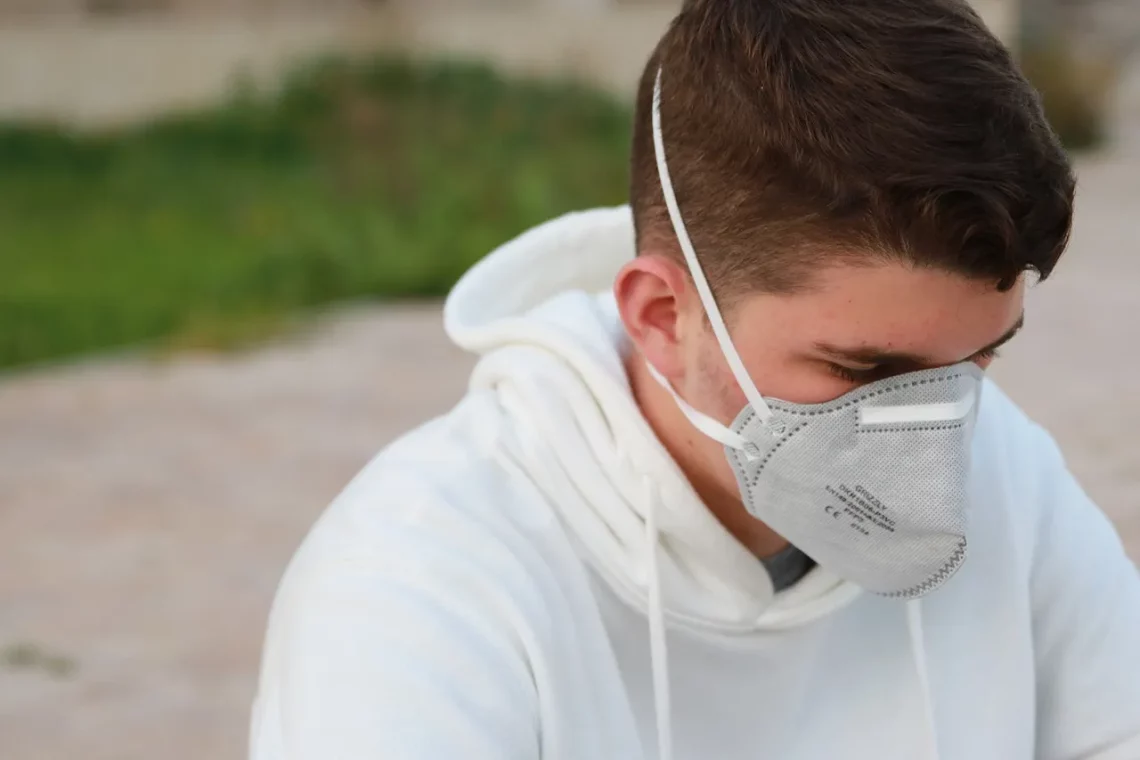
Can a UTI Cause Itching? Understanding the Symptoms and Effects
Urinary tract infections (UTIs) are a common health issue that can affect anyone, regardless of age or gender. These infections occur when harmful bacteria invade the urinary system, leading to various uncomfortable symptoms. While many people associate UTIs primarily with pain during urination or frequent urges to go, there is a broader spectrum of symptoms that can arise from these infections. One particularly distressing symptom that often goes unmentioned is itching.
Itching can be an annoying and persistent sensation, causing discomfort and distraction. For many, it may not be immediately clear whether this symptom is related to a UTI or another underlying issue. It is essential to understand the connection between itching and UTIs to manage symptoms effectively and seek appropriate treatment. The intricate relationship between the urinary tract and surrounding tissues can lead to various sensations, including itching, which often indicates irritation or inflammation.
Understanding the full scope of UTI symptoms can help individuals recognize when they need to seek medical attention. Moreover, knowing what to expect when dealing with a UTI can alleviate concerns and promote a proactive approach to health. In this article, we will explore the various symptoms associated with UTIs, including the role of itching, and discuss how these symptoms can affect daily life.
Understanding Urinary Tract Infections
Urinary tract infections are primarily caused by bacteria entering the urinary system, which includes the kidneys, ureters, bladder, and urethra. While the body has natural defenses to prevent infections, factors such as poor hygiene, urinary retention, and certain medical conditions can compromise these defenses. Women are particularly susceptible to UTIs due to anatomical differences, such as a shorter urethra, which allows bacteria easier access to the bladder.
The symptoms of UTIs can vary depending on which part of the urinary tract is affected. Common symptoms include a strong, persistent urge to urinate, a burning sensation during urination, cloudy or strong-smelling urine, and pelvic pain. In more severe cases, individuals may experience fever, chills, or back pain, indicating that the infection may have reached the kidneys.
While itching is not the most commonly discussed symptom, it can occur in conjunction with other signs of a UTI. The itching sensation often results from irritation of the urethra or surrounding tissues, which can become inflamed due to the infection. This inflammation can lead to discomfort and a feeling of urgency, prompting individuals to seek treatment. It’s important to note that while itching can be a symptom of a UTI, it may also indicate other conditions, such as yeast infections or sexually transmitted infections, which can cause similar sensations.
Recognizing the symptoms of UTIs is crucial for timely diagnosis and treatment. If left untreated, UTIs can lead to more serious complications, including kidney infections. Therefore, anyone experiencing symptoms should consult a healthcare professional for an accurate diagnosis and appropriate care.
Symptoms Associated with UTIs
The spectrum of symptoms associated with urinary tract infections extends beyond the commonly recognized signs. As mentioned earlier, individuals often experience a burning sensation during urination, which is a hallmark of UTIs. This symptom results from the inflammation of the urinary tract lining, which becomes irritated during the passage of urine.
In addition to burning, another prevalent symptom is the frequent urge to urinate, even when little urine is produced. This urgency can be both uncomfortable and disruptive, leading individuals to visit the restroom more often than usual. The sensation of incomplete bladder emptying can also accompany this symptom, leaving individuals feeling unsatisfied after urination.
Cloudy or foul-smelling urine is another indicator of a UTI. The presence of bacteria, white blood cells, and other substances in the urine can alter its appearance and odor. In some cases, blood may also be present, resulting in pink or red urine, which is a sign that immediate medical attention is necessary.
While itching may not be as widely recognized, it can occur alongside these symptoms. The irritation that leads to itching often results from the inflammation of the urethra or surrounding skin. This discomfort can be exacerbated by the use of certain hygiene products or clothing that may irritate sensitive areas.
In some instances, individuals may also experience systemic symptoms, such as fever, chills, and flank pain. These symptoms indicate that the infection may have spread to the kidneys, requiring more aggressive medical intervention. It’s crucial to pay attention to any combination of these symptoms and seek medical care, especially if they worsen or persist.
The emotional impact of UTIs should not be underestimated. The discomfort and frequent interruptions caused by symptoms can lead to anxiety and frustration, affecting daily activities and quality of life. Understanding the full range of symptoms can empower individuals to take control of their health and seek timely treatment.
The Connection Between Itching and UTIs
Itching associated with urinary tract infections can be perplexing for many. While burning and urgency are more commonly recognized symptoms, itching can indicate an underlying irritation that warrants attention. Itching may arise from several factors related to the infection itself and the body’s response to it.
One primary cause of itching is the inflammation of the urethra. When bacteria invade the urinary tract, the immune system responds by sending white blood cells to the site of infection. This immune response can lead to swelling and irritation, resulting in a sensation of itching. The urethra is sensitive, and any inflammation can trigger discomfort that may be mistaken for other dermatological issues.
Additionally, the use of antibiotics, commonly prescribed to treat UTIs, can disrupt the natural balance of bacteria in the body. This disruption can lead to yeast overgrowth, especially in women, resulting in a yeast infection that produces intense itching. It’s essential to differentiate between UTI symptoms and those of a yeast infection, as their treatments differ significantly.
Furthermore, personal hygiene practices can also play a role in the development of itching. Some individuals may use products that cause irritation, such as scented soaps or douches, which can exacerbate symptoms. It’s advisable to choose gentle, unscented products and avoid irritants during a UTI to minimize discomfort.
If itching occurs alongside other UTI symptoms, it’s crucial to consult a healthcare professional for a thorough evaluation. They can determine whether the itching is indeed related to the UTI or if another condition, such as a yeast infection or sexually transmitted infection, is present. Proper diagnosis and treatment are vital to alleviating symptoms and preventing complications.
In summary, while itching may not be the most common symptom of UTIs, it can be a significant indicator of irritation within the urinary tract. Understanding its potential causes and seeking appropriate medical advice can help individuals manage their symptoms effectively.
Managing UTI Symptoms and Seeking Treatment
When dealing with urinary tract infections, timely management and treatment are critical to alleviating symptoms and preventing complications. Recognizing the signs early on can lead to more effective interventions.
The first step in managing UTI symptoms is to consult a healthcare professional for an accurate diagnosis. A urine test is typically conducted to determine the presence of bacteria and white blood cells, confirming the infection. Once diagnosed, antibiotics are often prescribed to eliminate the infection, and it is essential to complete the entire course of medication as directed.
In addition to antibiotics, several home remedies may help alleviate symptoms. Drinking plenty of fluids, especially water, can help flush out bacteria from the urinary tract. Cranberry juice is another popular home remedy, as it may prevent bacteria from adhering to the bladder wall, although more research is needed in this area.
Over-the-counter pain relievers, such as ibuprofen or acetaminophen, can help manage discomfort and reduce inflammation. However, it’s essential to consult with a healthcare provider before taking any medication, especially if you have underlying health conditions or are taking other medications.
Maintaining good personal hygiene is crucial in preventing future UTIs. This includes wiping from front to back after using the restroom, urinating before and after sexual activity, and avoiding the use of irritating products. Wearing breathable cotton underwear can also help reduce moisture and prevent bacterial growth.
If symptoms persist or worsen despite treatment, it is imperative to return to a healthcare provider. Complications can arise from untreated UTIs, including kidney infections and recurrent infections. A healthcare professional can provide further evaluation and may recommend alternative treatment options if necessary.
In conclusion, understanding urinary tract infections and their associated symptoms, including itching, is vital for effective management. By recognizing the signs early and seeking appropriate treatment, individuals can alleviate discomfort and maintain their overall health.
**Disclaimer:** This article is for informational purposes only and should not be considered medical advice. For any health concerns or symptoms, please consult a qualified healthcare professional.




